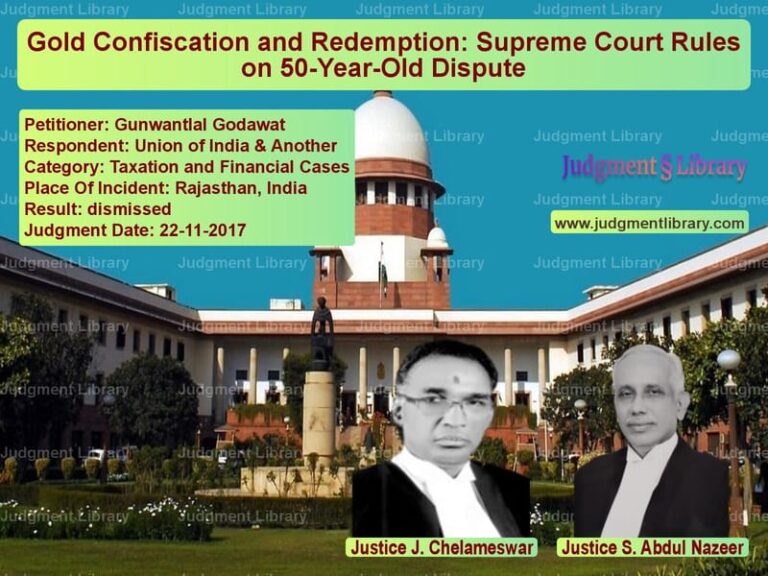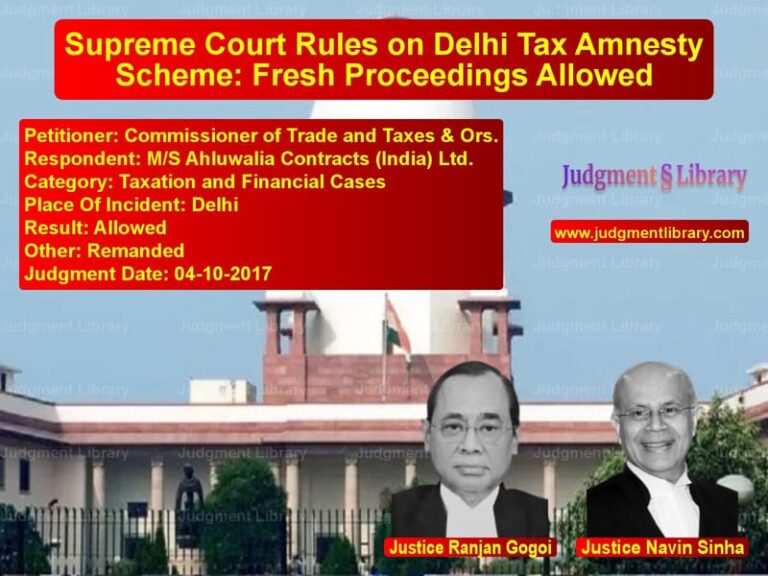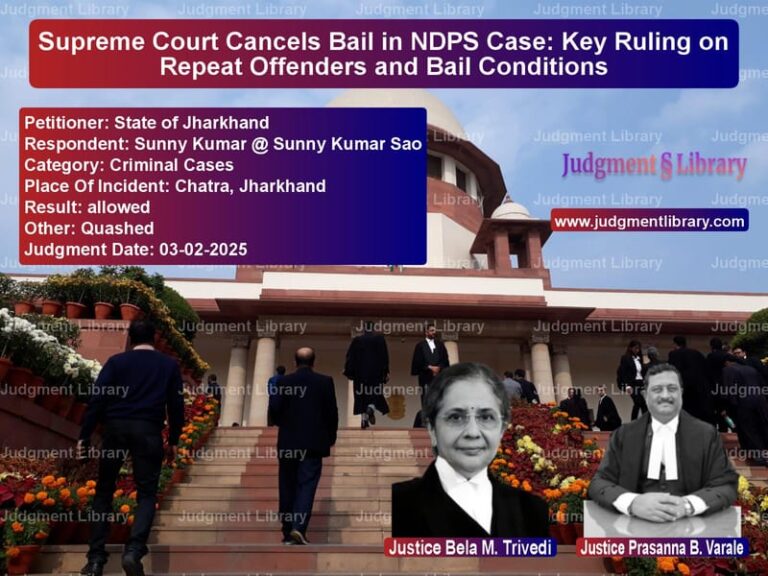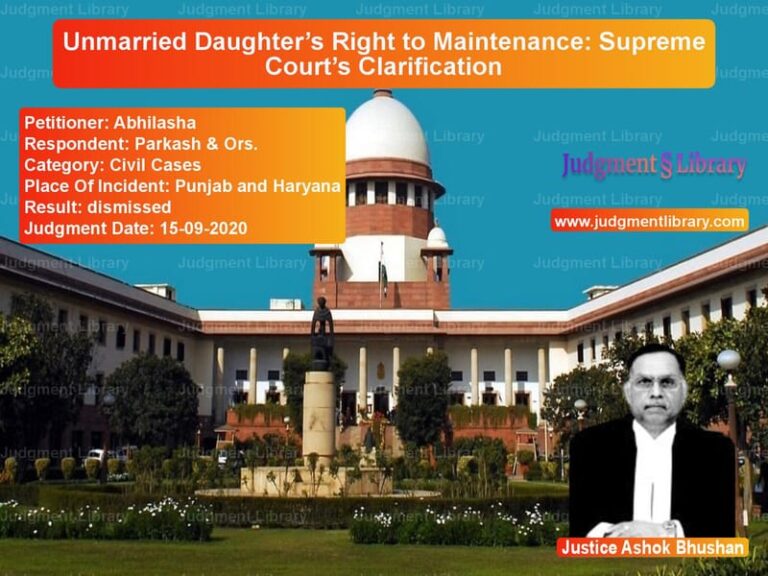Corporate Debt and Insolvency: Understanding the Landmark Judgment
The legal battle between Kay Bouvet Engineering Ltd. and Overseas Infrastructure Alliance (India) Private Limited is a significant case in the realm of corporate insolvency and bankruptcy. This case primarily dealt with the classification of operational creditors and operational debt under the Insolvency and Bankruptcy Code (IBC). The Supreme Court’s decision in this case provides clarity on the interpretation of insolvency laws, particularly concerning the existence of disputes and their impact on insolvency proceedings.
At the heart of the dispute was the financial arrangement between the Government of India, the Republic of Sudan, Mashkour Sugar Company, and the parties involved in executing the Mashkour Sugar Project. The key question was whether the claim made by Overseas Infrastructure Alliance (OIA) against Kay Bouvet constituted an ‘Operational Debt’ under Section 9 of the IBC, and whether OIA could invoke insolvency proceedings.
Background of the Case
The Government of India extended a Line of Credit (LoC) worth USD 150 million to Sudan through the Exim Bank of India for the Mashkour Sugar Project. Overseas Infrastructure Alliance (India) Private Limited was assigned as the contractor for the project, and Kay Bouvet Engineering Ltd. was later appointed as a sub-contractor.
On December 18, 2010, a tripartite agreement was signed among Mashkour, OIA, and Kay Bouvet, defining their respective roles. Under this agreement, OIA was to receive payments from Mashkour and further disburse the required funds to Kay Bouvet for carrying out the project.
However, disputes arose when Mashkour terminated its contract with OIA on June 15, 2017, and appointed Kay Bouvet as the main contractor. OIA challenged this decision, arguing that Kay Bouvet was obligated to return an advance payment of USD 10.62 million.
Petitioner’s Arguments
Kay Bouvet Engineering Ltd., through its legal counsel Shri Jayant Bhushan, contended that OIA could not be classified as an ‘Operational Creditor’ under the IBC. The key arguments presented were:
- Operational Debt Definition: The payment received by Kay Bouvet from OIA was made on behalf of Mashkour and was routed through OIA. Therefore, it did not qualify as an Operational Debt under IBC.
- Absence of Direct Obligation: OIA was merely an intermediary in the financial transaction. The actual contract for the project was between Kay Bouvet and Mashkour, making OIA’s claim invalid.
- Existence of a Dispute: Kay Bouvet argued that there was an ongoing dispute regarding the project’s execution and payments, which meant that an insolvency petition under Section 9 of the IBC could not be maintained.
Respondent’s Arguments
On the other hand, OIA, represented by Senior Counsel Shri C.A. Sundaram, contended that:
- Admitted Debt: Kay Bouvet had acknowledged receiving the payment from OIA, and once a payment is admitted, it qualifies as an Operational Debt.
- IBC Provisions: Section 9 of the IBC allows an operational creditor to initiate insolvency proceedings if a corporate debtor defaults in repaying an Operational Debt.
- Liability of Kay Bouvet: OIA argued that since Mashkour’s contract had been terminated, Kay Bouvet was obligated to return the funds received.
Key Legal Considerations
The Supreme Court examined several provisions of the IBC to determine whether OIA’s claim had merit. The court referred to Sections 8 and 9 of the IBC, which define the procedure for insolvency proceedings initiated by operational creditors.
It also cited the landmark case of Mobilox Innovations Private Limited v. Kirusa Software Private Limited, which held that an insolvency application can be rejected if a genuine dispute exists between the parties.
Court’s Observations
The Supreme Court noted that Kay Bouvet had sufficiently demonstrated the existence of a dispute. The judgment stated:
“It is thus abundantly clear that the case of Kay Bouvet that the amount of Rs.47,12,10,000/- which was paid to it by Overseas, was paid on behalf of Mashkour from the funds released to Overseas by Exim Bank on behalf of Mashkour, cannot be said to be a dispute which is spurious, illusory, or not supported by the evidence placed on record.”
The court emphasized that an insolvency petition cannot be used as a substitute for debt recovery, especially when a substantial dispute exists regarding the obligation to pay.
Final Verdict
The Supreme Court ruled in favor of Kay Bouvet and quashed the NCLAT order. The final ruling stated:
“The order passed by NCLT dated 26th July 2018, is maintained.”
This decision reaffirmed that insolvency proceedings should not be misused in cases where there is a legitimate dispute over the existence of debt. It also provided clarity on the classification of operational creditors and debts under the IBC.
Petitioner Name: Kay Bouvet Engineering Ltd..Respondent Name: Overseas Infrastructure Alliance (India) Private Limited.Judgment By: Justice R.F. Nariman, Justice B.R. Gavai.Place Of Incident: Mashkour Sugar Project, Sudan.Judgment Date: 10-08-2021.
Don’t miss out on the full details! Download the complete judgment in PDF format below and gain valuable insights instantly!
Download Judgment: kay-bouvet-engineeri-vs-overseas-infrastruct-supreme-court-of-india-judgment-dated-10-08-2021.pdf
Directly Download Judgment: Directly download this Judgment
See all petitions in Company Law
See all petitions in Bankruptcy and Insolvency
See all petitions in Corporate Governance
See all petitions in Corporate Compliance
See all petitions in unfair trade practices
See all petitions in Judgment by Rohinton Fali Nariman
See all petitions in Judgment by B R Gavai
See all petitions in allowed
See all petitions in Quashed
See all petitions in supreme court of India judgments August 2021
See all petitions in 2021 judgments
See all posts in Corporate and Commercial Cases Category
See all allowed petitions in Corporate and Commercial Cases Category
See all Dismissed petitions in Corporate and Commercial Cases Category
See all partially allowed petitions in Corporate and Commercial Cases Category







